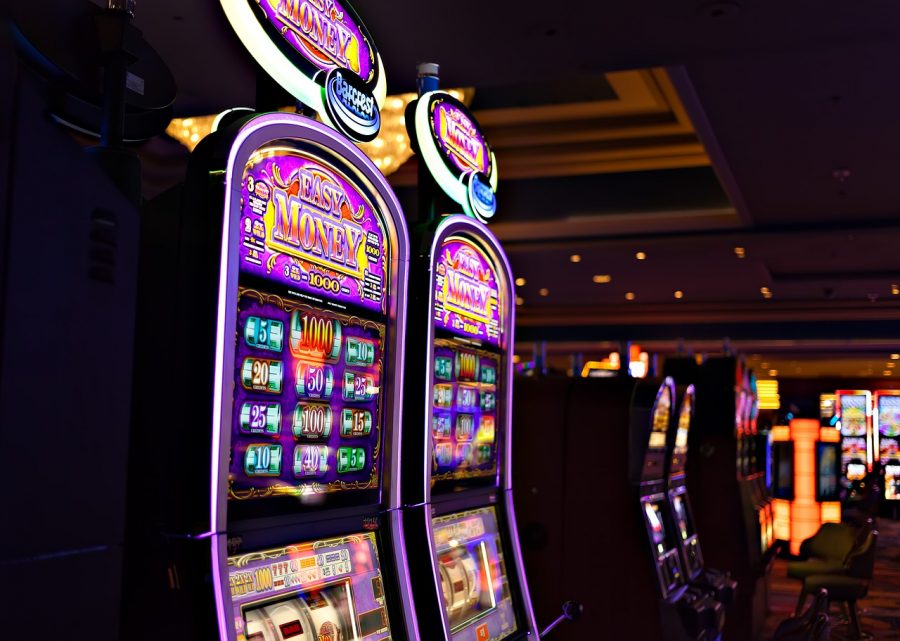Slot machines, also called fruit machines and pokies, depending on which English-speaking region of the world you’re in, have been in existence since the 1880s. The term slot machine, short for nickel-in-the-slot machine, initially applied to any automatic vending machines, but in the 1900s started to refer exclusively to gambling machines that create a game of chance for its consumers.
The standard layout of these iconic machines includes a display with three or more reels containing various symbols that rotate when a lever is pulled or a button is pushed. Traditional reel symbols have included various fruits (hence the term fruit machines), stars, bars, card suits, and the words jackpot and bar. Depending on how many like symbols or winning patterns line up when the reels come to a stop, the machine will either pay nothing or up to a certain percentage of what the machine has collected, with some machines having the jackpot increase every time the slot is played (ie, progressive jackpots). Today’s online slot machines build on this and make a variety of additional features possible, like at www.bestonlineslots.co.uk, such as additional paylines (ie, the rows across which you need to align matching symbols to win), practice modes that enable you test out a game with fake money, and coins/bet amounts (ie, enable you to bet a certain amount of money per winning payline).
Thus far, the largest slot machine payout recorded has been $39.7 million, which was paid to an LA software engineer who wagered $100 on Megabucks at Excalibur in Las Vegas in 2003. However, these days it is no longer necessary to leave your house to win big in slots. In 2018, almost €19 million ($20 million) was paid out to an anonymous player of Mega Moolah, a five-reel, 25 payline online slot game. This beat the previous world record of more than £13 million, which had been set by the same slot machine in 2015. Since 2007, 53 jackpot amounts totaling at least 1 million have been paid out on this machine.
While these cases are not the norm and winning millions in slots is about as likely as hitting the jackpot in the lottery, slot machine payouts have come a long way from their humble beginnings of drinks and cigars often paid out to the winners by the proprietors of saloons, which is where these machines were found before the advent of casinos. So, what are the odds of winning at slots? It depends on the slot machine and where you can play the best online slot games. Let’s look more closely.
How the reels of modern slot machines line up is dictated by a random number generator (RNG), which creates long sequences of random numbers several thousand times per second using a predetermined formula, with numbers continually generated, even when the machine is not being played. The RNG is determined by a microchip in physical machines and a microprocessor in online slots, and it doesn’t consider whether someone has recently won or lost. Once you pull the lever or press the button to get the reels spinning, the RNG generates a random number for each reel of the machine, with every number representing one of the symbols on the machine. And this is where the odds of winning can differ significantly.

First, the range of numbers generated vary by machine; for example, one machine might generate numbers from 1 to 1 billion whereas another machine might generate numbers from 1 to 100,000. Machines also vary by how many numbers in the range are assigned to each symbol. The more numbers assigned to a symbol, the more weighted it is in the machine. Subsequently, if a symbol on a 1 payline, 3-reel machine is weighted to come up once every 75 spins, getting three of the same symbols to appear is going to happen roughly once every 421,875 spins. Because this happens so rarely, this occurrence is likely to lead to a huge payout. In contrast, if a symbol is weighted to come up once every 15 spins, three of the same symbols are likely to line up roughly once every 3,375 spins. Since this is a much more frequent occurrence, payouts are going to be significantly lower. However, this calculation also assumes that each reel is weighted the same. Symbols on the last reel may be weighted differently to further reduce the odds of winning and increasing the frequency of near-miss scenarios.
Another major consideration is the machine’s payback percentage, also known as return to player (RTP), which could range from 75% to 98%. This means if a game has 95% payback you should get back $95 out of every $100 you wager in the game, provided you play the game long enough.
While there is no surefire way to win at slot machines, it is important to find reputable casinos to ensure the machines have not been rigged to make winning impossible and to avoid payout heartaches should you win. Some organizations keep a list of blacklisted casinos.






 Your total news and information resource for all things Science, Technology, Engineering / Mathematics, Art, and Medicine / Health.
Your total news and information resource for all things Science, Technology, Engineering / Mathematics, Art, and Medicine / Health.
Leave a Comment